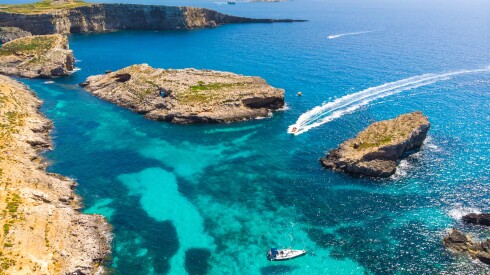Pietro Luraschi, the head safari guide and guide trainer for Asilia Africa, has spent the last 13 years leading travelers to unforgettable wildlife encounters in East Africa, especially in the most untouched parts of the region, such as Ruaha National Park and Selous Game Reserve. The Tanzania-based guide, a native of Italy, tells AFAR what it’s like to get to wake up every day and take a walk on the wild side.
How did you fall into the job?
I fell into this job because of a girl. I was 24 and she dumped me back home in Milan, and I decided to do something that would not bring memories back to my shredded heart. So I went as a volunteer to work for a couple of weeks in a Lion research project in Tarangire National Park in northern Tanzania. My heart healed and I fell in love with this amazing style of life, which is full of wonder and excitement, and makes my blood pump faster.
Where have you traveled, thanks to your work as a safari guide?
I have traveled many places, from the mountains of Ethiopia to the forests of Uganda, from the savannas in Kenya to the islands in Eritrea, from the desert of Namibia to the bush of South Africa. But most of all, I’ve been blessed to explore Tanzania extensively.
What are some of the downsides?
It is a life out of a suitcase, always moving from a place to another. You get to be close to nature but you’re often far from love, family, and friends.
Did you grow up traveling?
Not really, but my father had a great passion for nature, so we spent many holidays in the Alps or sailing in the Mediterranean Sea.
How has being a safari guide changed you or your perspective on the world?
Guiding changes your perspective in many ways. First, you meet a great variety of people, and talking to them widens your horizons dramatically. Second, you learn how to observe. Animals talk to you with no words. We forgot about that a long time ago, but by observing them you observe yourself. Understanding nature helps you understand people.
What are the day-to-day obligations of your job?
As a guide, my duty is simple: I have to translate the language of the bush to guests who do not have the keys to do so. I have to explain what happens: the what, the why, and the how. On an average day, I wake up, guide the guests through a walk or a drive, and chat with them about nature. As a trainer, I have to channel the passion of young trainees and help them have a deep understanding of nature and its complexity. I also need to make sure they know how to deal with different people in the most safe and entertaining way.
What’s your craziest safari story?
I woke up one night to a strange sound from outside the tent, a sort of thud. A full moon brightened the darkness of the African night, and I saw that a lioness was stalking my hammock. She ran, she jumped, and she back flipped on the hammock landing with a great thud. She wasn’t happy with the outcome so she tried again three times, and then she became frustrated so she started clawing at it. My hammock is important—it’s the best spot for an afternoon nap—so I filled a bucket of water, walked out, and threw its contents at the cat. She ran away into the bushes. I was very proud of myself until she came back with two other cats to investigate. I thought it best to retreat to the safety of my tent. My hammock still has holes and claw marks, but nonetheless, the naps are still great!
What do people outside of your profession not get about your role?
How tough and tiring it can be. People often think that because we are in amazing places, witnessing amazing stuff, that we are the luckiest people in the world. But it is not luck. We work hard for the privilege of being here.
What would you change, if you could change anything?
I would have my family around. And I would live in a world where wildlife thrives and is respected instead of living in a world where greed is decimating animals, like the elephant population, to the point where we risk losing them all.
What makes your line of work different from any other?
It puts me in contact with nature every given moment of my day. I get to experience nature in one of its wildest expressions.
What do you hate most about your line of work?
Seeing the destruction that man brings to nature, and seeing the unethical behavior that often surfaces when money becomes the only reason to do this job.
What do you love most about it?
Seeing the sparkle in the eyes of guests after they’ve spent few days in the bush. The feeling that you are nature—you’re not only in nature. The satisfaction of being able to give a life-changing experience to the people you train. The quest of trying to find animals using all the senses. The friends that you make traveling dirt roads, who you do not see every day, but remain friends for life.










